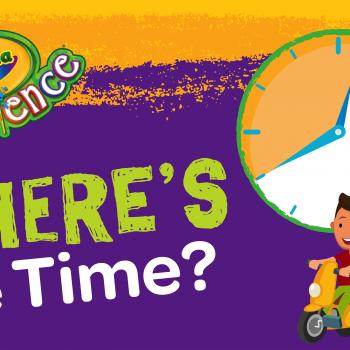 The following is an excerpt from my interview with Kathy Kuhl on my podcast, You’ve Got This.
The following is an excerpt from my interview with Kathy Kuhl on my podcast, You’ve Got This.
Kathy offers creative solutions for parents teaching children with learning challenges. She provides parents resources, support, and insight. A veteran homeschooler and former teacher, she knows the help you need. After homeschooling her son (a creative, distractible dyslexic with great perseverance), Kathy interviewed 64 parents homeschooling students with learning disabilities. Then she wrote Homeschooling Your Struggling Learner, a handbook equipping parents to teach children with dyslexia, attention deficit, autism, giftedness, and other challenges. Her encouragement is rooted in experience, research, and biblical principles. She can help you customize your children’s education to their needs, strengths, and gifts.
Most of us as parents think we encourage our children. I’m always encouraging my child to pick up their socks! But sometimes we can accidentally discourage our children.
Kathy: There are several things we do that we don’t realize are really making our kids’ lives harder. One way is by getting ourselves too stressed out. We pack up the family schedule with way too many things, and our kids start thinking they’ve let Mom down again because we’re stressed. We discourage them by communicating your stress by working yourself too hard.
Another way we do it is by setting unreasonable expectations, such as “You got your homework done, good, you can do this extra studying.” “You finished cleaning your room early, good, let me give you this to do.” We can rush into other things and not pause and appreciate what they are doing.
The biggest one that I’ve seen for myself is accidentally discouraging my child with my tone of voice or my words. Sometimes, I’ve used a tone that just sounded like I was annoyed or angry with the child and I wasn’t. Maybe I was worried about my uncle in the hospital or angry that the repairman just tried to rip me off, but if I’m still annoyed about it and it comes through my voice, all the kids know is mom is mad and they think it’s their fault. We can accidentally discourage them with that tone of voice, and sometimes, just even with our facial expression.
Personally, this has been something that I have tried to keep at the front of my mind, but again, you’re right, sometimes, I’m tense about a deadline or the fact that I have to be in three places at the same time, and there is only one of me, right? So I can kind of project my own tenseness on them. There have been times too when I am talking to my children and I just simply asked them, I said, “Do I sound upset?” or, “Do I sound mad to you?” I use that to check my tone. If the answer’s yes, I will take a breath and explain like: “I’m not upset at you, I’m sorry, my mind was on X and I did not mean for it to come across when I was talking to you about your socks on the floor.”
Kathy: Sometimes, it’s not even that you are upset or mad or depressed. Maybe you’re sad because a relative died. The kids don’t realize that you could be aching about that for a long time or maybe you’re just really tired and when you’re tired, it’s easy to sound crabby. Or you just don’t quite have enough energy. You get curt and kids could misinterpret that.
One time, about six to eight months after my dad died, one of my boys was playing a little too roughly downstairs and he nicked a piece of furniture my dad had built for me. I just about lost it and yelled at him. He’s crying, and I’m crying. Then I took a deep breath and explained: “I know you didn’t mean to do it. You know my dad built this when I was like, 12 and when I saw a piece had broken off, all of a sudden, I just really missed my dad.” Sharing that with him, I found it very helpful for the connection between me and my son, and helped heal the tiny tear I created with my overreaction.
Kathy: You’re actually doing yourself another favor which is letting your child know something about grief. Sometime in the future when he has suffered a loss, this will be one of the things he can refer back to. Grief is funny that way. You think you are getting better, and then one afternoon, it hits you over the head and you’re in tears.
Let’s shift topics and talk about rewards and praise. What’s the right way to do praise? What’s the wrong way? 
Kathy: That’s a complicated topic and I have a couple chapters on this on my book Encouraging Your Child. It’s a delicate balance. You are right, we do want to encourage them to do their best, but if their best is B work, you don’t want to say, “Oh, another B, that’s disgusting.” Maybe for them, that B is an A.
I used to teach eighth-grade math at a public school, and I remember I had one student who she just tried so hard every day—I don’t think she got better than a C, but she was the one who was always there on time, polite, got the homework turned in, never skipped any of the work. I saw some of these other things kids who were making no effort because math was easy for them. But at the end of the year, I told this student: “If I had somebody to hire, I would pick you because some of the other kids don’t really know how to be diligent and push on.” So, one of the first things is to be praising effort and recognizing it.
Sometimes, our kids are struggling really hard and all they get is a D or a C, and if that is the best they can do, we still got to recognize the effort they made because it’s not much fun working really, really hard and only getting a mediocre grade.
That’s one thing we have tried to emphasize with our kids too, that we expect them to do the best they can. Sometimes, that’s going to be A’s and B’s, and sometimes, you’re going to work super hard and it’s going to be a C or a D.
Kathy: Another thing to praise is not just the effort but the continued effort, the perseverance, that pushing on in spite of getting that C because sometimes, especially the prima donna of students who get A’s all the time, they get a B or a 95 instead of a 99 and they are in tears, and they don’t want to try again. Encouraging our kids and praising our kids for continued effort is important.
Another way we can praise our kids more effectively is to praise them thoughtfully. We can just toss off praise like, “Oh, nice job,” and then we’re onto the next thing, but there is ways to praise specifically. For instance, if a child fails and tells you they failed, they are being honest. They could’ve tried to hide that paper, hide that note from the teacher. So, do we appreciate their honesty and their perseverance?
I also want to praise the progress. Sometimes, it just takes a while to get through something. Maybe they got a C this time, but it was a D last time, so that is progress. Pushing on is important.
I have a child who has a hard time replacing those mantras that go through our brain when this child repeatedly forgets to do something. I would love some tips on how to help our kids replace those broken records in their brains, so that they can kind of do that good self-talk encouragement.
Kathy: Oh, that’s a great question and it is so important to think about what stories you’re telling, what stories your children are telling themselves about themselves. One way you can do it is through literature. Reading books like The Courage of Sarah Nobles with a young character who tells herself: “Keep up your courage, Sarah, keep up your courage, Sarah.”
One thing we can do is we can help each other’s kids. For instance, if I’m with you and I get to spend enough time with one of your kids, I can say to one of them, “I really appreciate how you did this,” or “I noticed you’re doing this.” One of the moms I interviewed for Homeschooling Your Struggling Learner said that this really had remarkable effects on one of her children. A friend of hers said to the speaker’s daughter, “I really appreciate how patient you are.” The mother of this child didn’t think the child was particularly patient, but this was a respected friend and the girl thought, “I guess I am sometimes kind of patient. Yeah, I’m a patient person.” And the girl started being more patient, that became part of her identity.
Meditating on scripture helped me a lot as a teenager. I picked out a few couple of key verses that addressed my deepest concerns, and in my case, it was worry. Picking friends wisely could be a big help because our friends can encourage just all kinds of good habits. So, if you see your child pick out a friend, who is encouraging or kind, you can say, “That’s a good one, that’s somebody who can’t support you.” Finally, one other thing is giving thanks because if we are thanking God for what he has given us, if we are thanking other people for their kindnesses to us, then that gets our minds off of oh, poor me.
To hear more great advice and stories from Kathy, listen to “How to Avoid Discouraging Our Children” on the “You’ve Got This” podcast.












